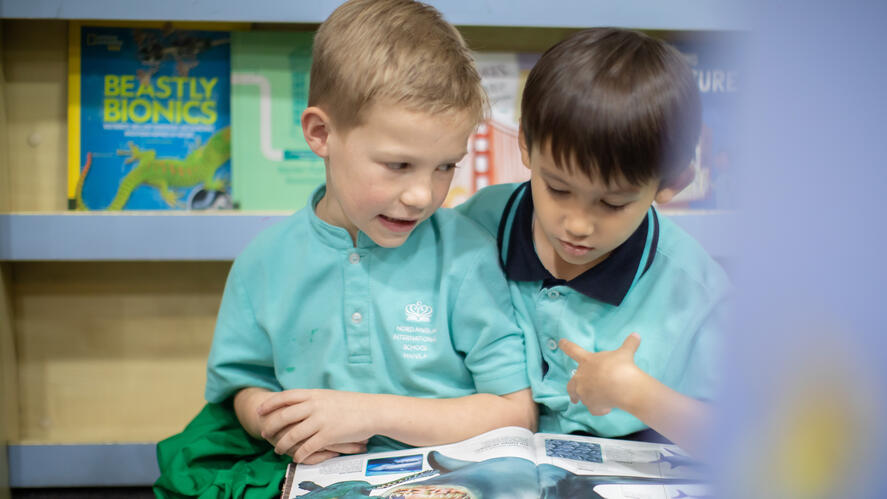We use cookies to improve your online experiences. To learn more and choose your cookies options, please refer to our cookie policy.

Learning to read means many different things to different people. Certainly, when I was at school we learnt by ‘rote’.
Thankfully over the years, things have developed significantly and our teachers at NAIS Manila are highly trained in this area.
Over the past couple of weeks, all children in Year 1 and Year 2 (Key Stage 1) have had their initial Phonics ‘Baseline’. Mr. Barnett and his team have grouped the children and live daily phonics is now taking place through our Virtual Schooling Experience.
The smaller groups allow our teachers to cater for the individual needs of the children. It’s clear to see the confidence the children are developing in this area.
Phonics is a token phrase that gets thrown around a lot in terms of education and language development. What exactly is phonics, and why are these skills so important for your child?
Phonics is a way of teaching children to read quickly and skilfully by connecting sounds with letters or groups of letters. Using phonics children can:
These are just some major milestones, as there are many complicated components to phonics instruction that your child will learn from our teachers.
Phonics as a teaching method is a great way to learn to read as it simplifies the English language down into just 44 sounds. Children, therefore 'decode' words by breaking it down into it sounds rather than having to memorise 1,000's of words individually (much like I was taught in school).
Research shows that phonics, when taught correctly, is one of the most effective ways of teaching children to learn to read – this is backed up by our assessment data at NAIS Manila. Sounds are taught from easiest to hardest: single letter sounds first then moving on to two letters making a sound and so on. Learning phonics is one of the most important stepping-stones in early reading.
When children are familiar with the sounds that the letters make, they are able to use them when reading, to segment and blend words together.
Virtual Learning is truly a team effort and all children - regardless of ages or abilities - will benefit from support from an adult.
Here are a few tips to help you nurture your child’s progress.
Phonics can be tricky to understand if you have never used it to learn to read, but if you would like to know a little more, please speak to your child’s teacher. They will be more than happy to arrange a virtual meeting to update you on your child’s progress.
Happy phonics-ing! I’m sure that’s not even a real word - perhaps I need to attend some of the KS1 phonics lessons myself!
- Chris Pooley, Principal